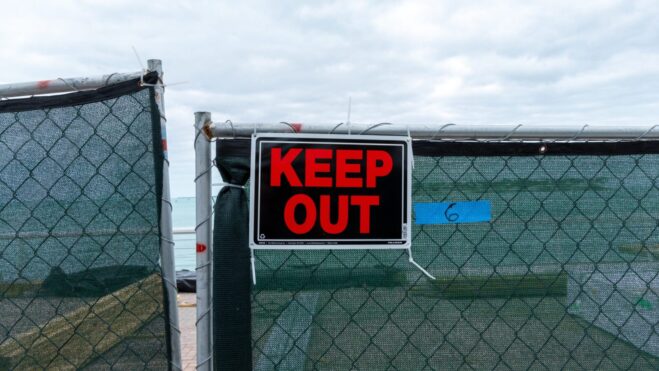BetMGM And Addicted Gambler Dispute Their Roles In Fraud, Negligence Case Appealed To Third Circuit
Under existing law, what duty does a casino operator owe to a patron, however reckless his behavior?
3 min

The U.S. Third Circuit Court of Appeals on Tuesday heard from attorneys representing an alleged addicted gambler and BetMGM, the defendant in a lawsuit that arrived on appeal to the Federal circuit court after the lower court dismissed the gambler’s claims.
As had been the case with previous filings in the suit, a core issue is to what extent a gaming operator can continue to woo a customer who already has lost millions of dollars by offering incentives such as bonuses for continued play via text messages.
“This case is not about a casino [operator] passively permitting an addicted gambler to continue to lose,” plaintiff’s attorney Matthew Litt told the three-judge panel in a Philadelphia courthouse. “It is about a casino aggressively enticing a known problem gambler.”
A pair of VIP hosts for BetMGM, Litt said, sent more than 1,800 texts to plaintiff Sam A. Antar in a span of just over six months beginning in June 2019, with Antar estimating he lost about $30 million in that time frame playing on BetMGM’s online casino website. The incentives continued in spite of a subpoena issued to the defendant BetMGM in August 2019 that outlined the extent of Antar’s increasingly reckless behavior.
But the judges asked if it could be assumed that Antar would have lost the money anyway, if BetMGM ceased communications, since there are more than a dozen other legal online casino gaming sites in New Jersey. And even if not, how could the court define the amount of damages to be awarded that specifically was due to the potentially overaggressive texts?
Litt replied that if the case were not dismissed, he would introduce expert witness testimony showing that for an addictive customer, the incentives would increase the volume of Antar’s spending. He added that the entertainment value of playing casino games disappears once a gambler becomes addicted.
New Jersey’s Consumer Fraud Act (CFA) is the proper law to focus on, Litt said, even though there is no specific precedent for a claim like Antar’s being subject to the terms of that act.
But one of the judges on Tuesday, after noting that consumers receive constant reminders that they can self-exclude from a gambling website at any time if they find themselves losing too much money, asked if the enticements offered to Antar qualified as “misleading.”
Litt said that BetMGM was legally negligent not because they failed to take action, but because the VIP hosts knew Antar was a compulsive gambler yet continued to offer the incentives.
Applicable law and ‘a novel duty of care’
BetMGM attorney Matthew McGill noted that he is not aware of the New Jersey Division of Gaming Enforcement (DGE) — which rules over all legal gambling options in the state — having issued any rules that cover text messages of the sort that are at the core of the case. He added that DGE “balances two competing interests – fostering a vibrant casino industry and giving protection to the consumer,” and also that DGE is “more competent” to decide such matters than the court system would be.
McGill’s colleague Dan Reinhart asked the court not to “impose a novel duty of care” for casinos to precisely identify all compulsive gamblers, because the Casino Control Act — which he said is the relevant law in the case — does not require that.
On rebuttal, Litt said Reinhart’s question about how can BetMGM be so sure of who is and is not a compulsive gambler can be answered by the fact that the VIP hosts are specifically trained to identify such troubled customers.
Antar is an heir to the family fortune generated by the “Crazy Eddie” consumer electronics company that featured countless television ads in the New York City area during the company’s heyday in the 1980s.
A U.S. District Court Judge dismissed Antar’s claims in January, and BetMGM’s attorneys asked the panel on Thursday to do the same. The judges did not offer any immediate ruling.
Judge Madeline Cox Arleo concluded in that decision that the state’s Casino Control Act — not the Consumer Fraud Act — was the governing law.
“The New Jersey Legislature … has not yet seen fit to require casinos to prevent or stop inducing gambling from those that exhibit problem gambling behavior,” Arleo wrote. “As a matter of law, defendants do not owe a negligence common law duty of care to plaintiffs.”
Arleo added that state legislators have not chosen to pass a law requiring casinos to “prevent or stop inducing gambling from those that exhibit problem gambling behavior.”
Litt, Antar’s attorney, told Casino Reports last month that the CCA is irrelevant because it only relates to brick-and-mortar casinos.
Antar, meanwhile said that “I understand that casinos are providing customers with entertainment. But at the point they were bleeding me dry, they crossed a line.” Antar added that “this is not just about me; this is about all the people across this country who have this addiction. When are we as a country going to address this?”
Litt is also representing the plaintiff in a similar case filed in New Jersey Superior Court just last week. In that matter, the estranged wife of a compulsive gambler is suing DraftKings and a team of its VIP hosts for fostering the addiction of a sports bettor who accumulated losses in excess of one million over a four-year span during which the husband’s betting activity increased.
The causes of action are in negligence and also under New Jersey’s CFA. DraftKings did not respond to Casino Reports‘ requests for comment on the allegations.






